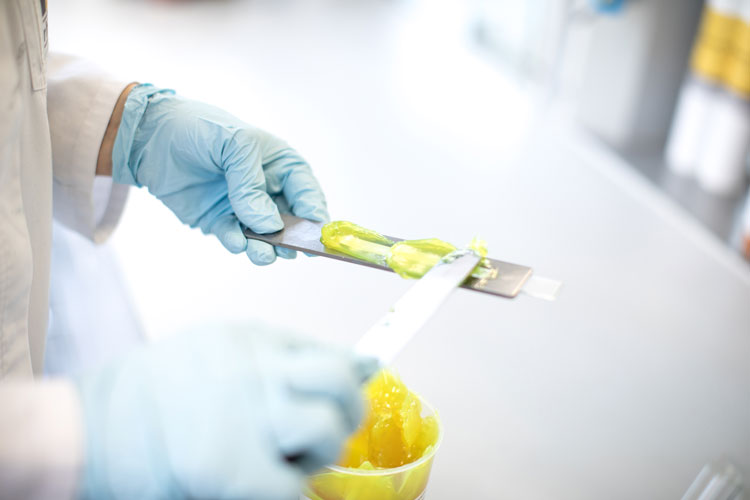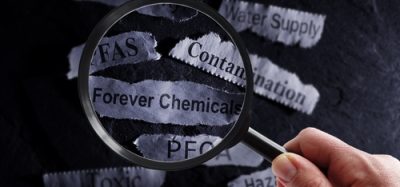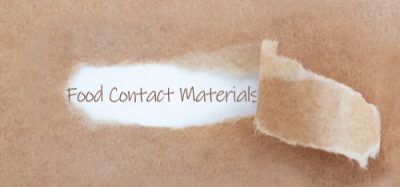Grease is the word
- Like
- Digg
- Del
- Tumblr
- VKontakte
- Buffer
- Love This
- Odnoklassniki
- Meneame
- Blogger
- Amazon
- Yahoo Mail
- Gmail
- AOL
- Newsvine
- HackerNews
- Evernote
- MySpace
- Mail.ru
- Viadeo
- Line
- Comments
- Yummly
- SMS
- Viber
- Telegram
- Subscribe
- Skype
- Facebook Messenger
- Kakao
- LiveJournal
- Yammer
- Edgar
- Fintel
- Mix
- Instapaper
- Copy Link
Posted: 12 November 2020 | Bethan Grylls (New Food) | No comments yet
New Food hosts a roundtable with three food-grade lubricant leaders to learn more about this vital product.


Despite not taking the spotlight in a production facility, food-grade lubricants (FGLs) are critically important. In a special roundtable, New Food hears from three FGL experts to find out why.
Q: Why are FGLs important?
MP: Consumers have a right to healthy and safe food. Numerous machines are used in industrial food production, which require a variety of lubricants to operate economically. It is not only the technical performance that is paramount; the lubricants must also satisfy strict hygiene requirements. Furthermore, they should not be harmful to humans in the event of occasional contact with food – in terms of smell, taste and health.
AH: If non-FGLs (or an incorrect category of FGLs) are used in an area that a food manufacturing site’s HACCP study has identified as a chemical hazard risk to the food, then any food produced could become hazardous for consumption.
This can cause significant costs due to wasted production time and materials, recalls and even brand damage. If tainted food was consumed and a poisoning incident occurred, then this would likely result in legal action and possibly have associated repercussions.
Despite not taking the spotlight in a production facility, food-grade lubricants (FGLs) are critically important. In a special roundtable, New Food hears from three FGL experts to find out why.
Q: Why are FGLs important?
MP: Consumers have a right to healthy and safe food. Numerous machines are used in industrial food production, which require a variety of lubricants to operate economically. It is not only the technical performance that is paramount; the lubricants must also satisfy strict hygiene requirements. Furthermore, they should not be harmful to humans in the event of occasional contact with food – in terms of smell, taste and health.
AH: If non-FGLs (or an incorrect category of FGLs) are used in an area that a food manufacturing site’s HACCP study has identified as a chemical hazard risk to the food, then any food produced could become hazardous for consumption.
This can cause significant costs due to wasted production time and materials, recalls and even brand damage. If tainted food was consumed and a poisoning incident occurred, then this would likely result in legal action and possibly have associated repercussions.
Q: How has the sector evolved?
SD: In the food market, quality labels are considered a must – and the FGL sector is no exception. Day after day more lubricants are registered for accidental food contact (H1) on the National Sanitation Foundation (NSF) whitebook. This market is very dynamic, and every lubricant company wants to obtain NSF H1 lubricants. For food lubricants our production plants are approved NSF ISO 21469, which is the highest standard for food safety. Food companies’ quality departments play an important role here. They are savvy in this area and are becoming more demanding. The NSF H1 certification is essential, but only the raw materials are registered and there is no real control. Customers want a strict follow up – from the raw materials, to the production lines and analysis of the final lubricants.
MP: Food safety is becoming an increasingly important topic and awareness has grown sharply among consumers. Products must satisfy the consistently stringent requirements of the US Food and Drug Administration (FDA) and NSF. However, the market for FGLs is becoming more demanding: in addition to raw material composition, the production process is being considered to a greater extent, particularly with regard to certifications in accordance with ISO standard 21469, which defines corresponding hygiene requirements for lubricant production. The need for enhanced food safety is also reflected in the steadily increasing demand for FGLs.
Q: Is there an especially challenging sector in which FGLs can help?
AH: Historically, any sector that uses pellet presses as part of their process has been challenging. This is due to the high loads, temperatures at around 100°C, and very high humidity. Any grease
By using FGLs, you can drastically limit the risk of contamination with MOAH; careful selection of appropriate lubricants is key
that is used in the ring die bearings will ultimately pass into the finished product (pellets). With as much as 200g of grease (usually non-food grade grease) being recommended by the Original Equipment Manufacturer (OEM) to be applied to the ring die bearings per hour, this represents a large source of contamination for the pellets. We have provided a solution that requires only 50g of food-grade grease per hour, while increasing the life of the bearings from approximately six months to at least 18 months (the bearings are still running with no failures yet).
SD: Only food lubricants are widely certified halal and kosher, so some food companies use food lubricants for religious purposes. It is part of Total’s DNA to work in international environments and to adapt to local culture.
MP: The market for the production of halal and kosher-compliant food continues to grow. Those who wish to cater to this market need to arrange their entire production line in such a way that the stringent requirements can be met. This also applies to the lubricating greases used. The food cannot become contaminated in the event of accidental contact with the lubricants used; which, in many applications, can never be completely ruled out.
We have a range of lubricating greases that are halal- and kosher-compliant. In addition, we only use raw materials that meet these requirements. For example, we do not use porcine elements (ie, materials sourced from pigs) and alcohol cannot be used as a component. It is also important to note our production area is always kept separate for this type of production, allowing us to avoid any cross-contamination.
Q: Provide an example of how you have helped a customer
MP: We helped a manufacturer of industrially produced baked goods with our lubricating greases. The challenge was to find lubricating greases that could be used in direct and regular contact with food; for example, as a separating agent in baking tins used to make waffles. We offer a selection of 3H process oils for this special field. NSF/3H approval is the most far‐reaching of the certification procedures as it involves lubricants that come into direct contact with food. It guarantees perfect food quality, even in the highly challenging application area that our baked goods manufacturer operates in.
SD: A common question is ‘How can we reduce exposure to mineral oil aromatic hydrocarbons (MOAH)?’ By using FGLs, you can drastically limit the risk of contamination with MOAH; careful selection of appropriate lubricants is key. However, it is a difficult task and one that requires the right guidance. Total is a lubricants multi specialist, with experts able to assist customers anywhere around the globe. Our customers can rely on us to lubricate all of their applications, in all of their plants.
AH: We were asked by a major global chocolate and snack-food manufacturer to work with them to roll out their Lean Six Sigma programme across a number of sites. We started the journey at each site and carried out full and detailed lubrication surveys of the individual production lines and process areas. We provided audit-compliant solutions for line-side storage and management of their FGL and created Standard Operating Procedures for best practice lubrication of each of their items in the plant.
We then undertook a significant training period over the course of a year to ensure that all their Technical Operators were competent and proficient at carrying out the lubricant tasks they were assigned. We also provided a ‘train the trainer‘ course to the site lubrication champions, to enable the sites to become future proof and self sufficient. These sites are now achieving highest-level audit compliance with improved uptime of plant and decreased lifecycle costs.
Participants:


Grease Product and Sales Manager, Rhenus Lub (MP)


Segment Specialist – Food Processing and Hygiene, Rocol (AH)


Food Grade Lubricants Market Manager, Total (SD)
Issue
Related topics
Contaminants, Equipment, Fats & oils, Food Grade Lubricants, Food Safety, Processing, Research & development
Related organisations
NSF International, Rhenus Lub, ROCOL, Total, US Food and Drug Administration (FDA)









